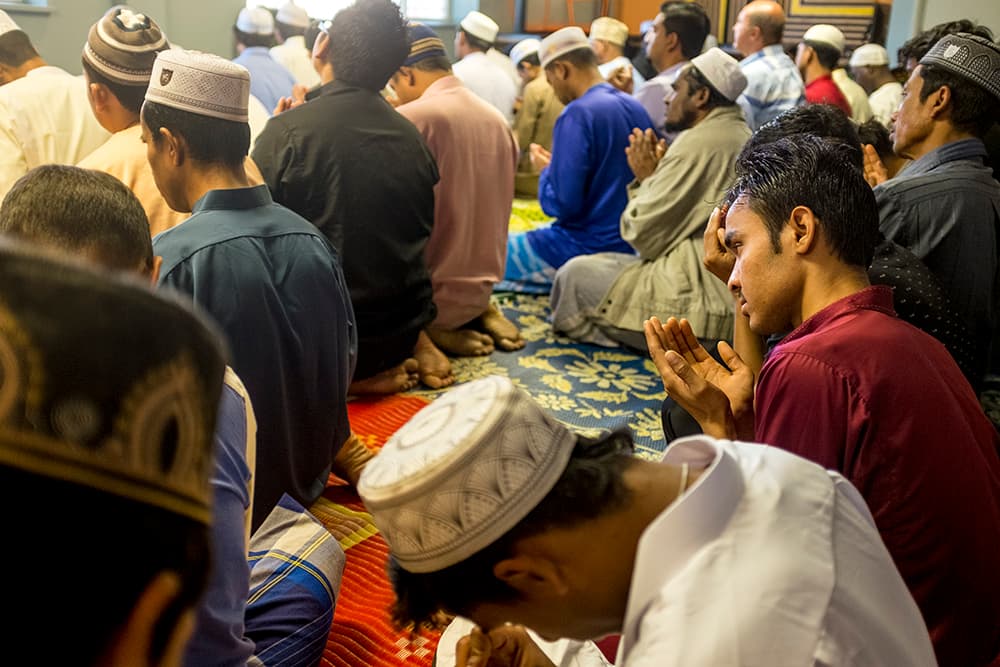The advocacy group New American Economy and the Denver Office of Immigrant and Refugee Affairs dropped a new report Monday looking at how COVID-19 has disproportionately impacted immigrant and BIPOC communities.
The national report includes the voices of 2,100 Black, Indigenous and immigrant residents from Atlanta, Austin, Denver, Louisville, and Tulsa.
"COVID-19 has hit communities of color and immigrant communities especially hard, revealing disparities in access to basic services and supports that are needed to recover from the economic, social, and health-related consequences of the pandemic," said Dan Wallace, deputy managing director of New American Economy, in a statement.
The Denver data is based on conversations with 264 immigrant residents -- a tiny fraction of the 97,800 immigrants who live in the city, or 13.4% of the total population, during the last American Community Survey.
According to the report, immigrants in Denver have been struggling with employment, housing stability, healthcare access and paying the bills more than citizens during the pandemic. Racial tensions have risen, making accessing services harder. Through it all, most of the immigrants surveyed said they have had access to critical services during the pandemic offered by the city of Denver. And some said they have been engaged in civic life despite their struggles.
Even before the pandemic, immigrants faced a lower median income than citizens, and those with limited English proficiency were making less than half as much as citizens. After the pandemic, the new report found, nearly a quarter of Denver immigrants surveyed lost their jobs and 36% had their hours reduced at work. Around 59% worried about paying utilities, 39% worried about paying emergency expenses, 38% worried about food security, 36% worried about debt and 27% worried about paying for healthcare and medicine.
Around 77% of respondents said the city's government took proper action to protect them from COVID-19 and prevent its spread, but only 33% said they had adequate safety measures at work and just 24% received adequate medical care.
During the pandemic, as policies shifted rapidly, language barriers prevented a fifth of immigrants from feeling like they had reliable access to timely public health information. COVID-19 heightened racial tensions, reported 29% of immigrants, and 37% said they experienced tensions in their neighborhoods based on racial or ethnic differences.
"I'm an Asian-American living in a world where many people blame my race for the virus," one respondent stated. "I never feel safe, not even to breathe while I'm throwing away the trash."
"I believe COVID increased political polarization and contributed to a sense of insecurity for my family near the election," said another. "Our neighbors left KKK and ICE notes on our cars and on our door. It has also been scary to see people deny the pandemic and prioritize their own self-interest above the community's wellbeing and safety."
Through it all, 32% of immigrants participated in volunteer community work while 15% attended neighborhood or city council meetings, showing relatively high levels of civic engagement.
The purpose of the survey, Wallace said, was to give local governments the tools they need to be more supportive. And Denver's Office of Immigrant and Refugee Affairs is ready to do just that, sharing the survey results with agencies through the city.
"We cannot underestimate the value of hearing from even a sample of our immigrant and refugee communities about the toll COVID-19 continues to take on their families," said Atim Otii, the agency's director. "While results indicate efforts including vaccination drives and the Left Behind Workers Fund, which provides cash assistance for basic needs, are accessible and valued, too many are being left behind because of language gaps and racial tensions in our communities. This qualitative feedback will help us further address needs identified and better support immigrants and refugees along their integration journeys."
But for one respondent, the greatest support and sense of connection during the pandemic came not from government but form fellow residents showing up for each other.
"I feel like communities are realizing their power within this space," the respondent said. "Mutual aid has done more for a lot of folks than government and in that sense I think I feel a greater belonging."












